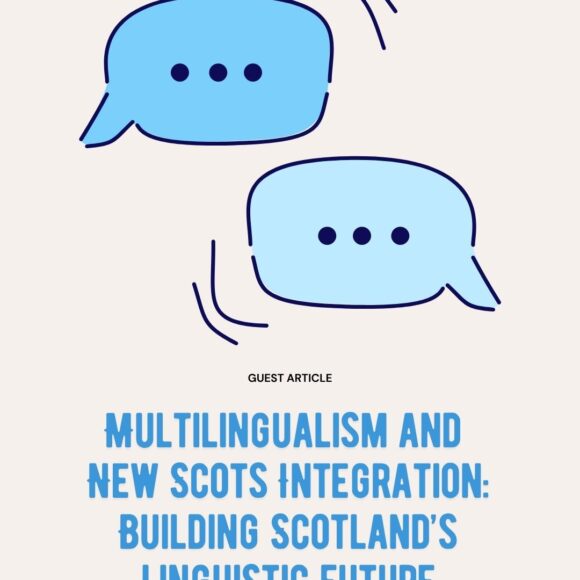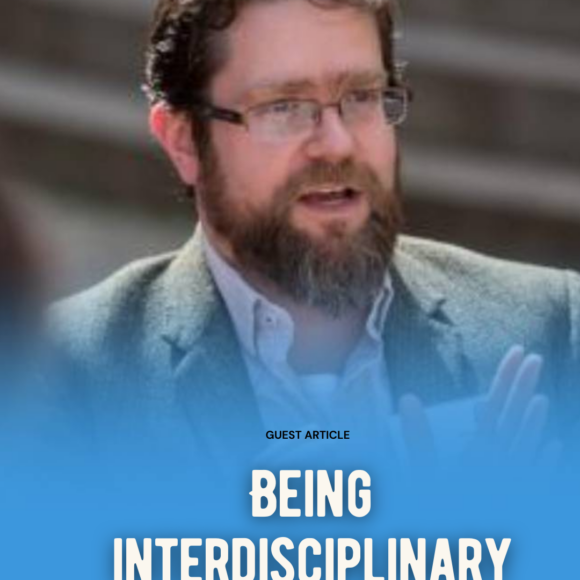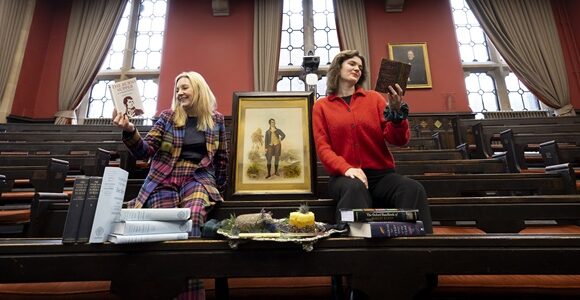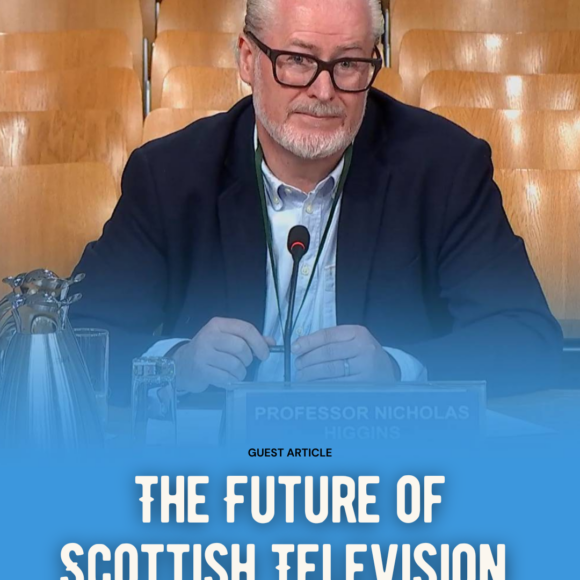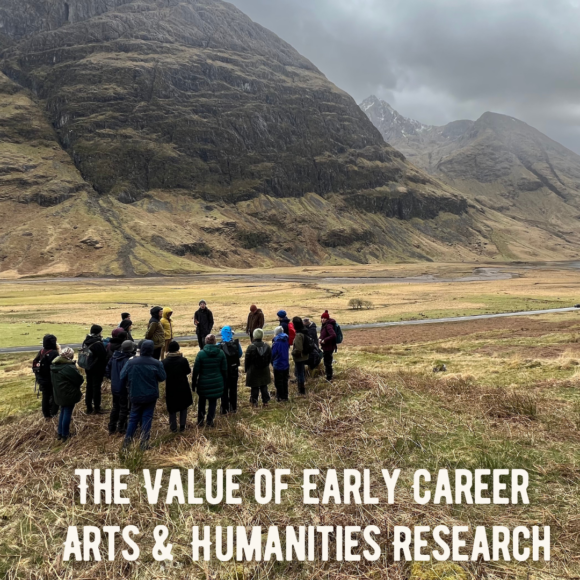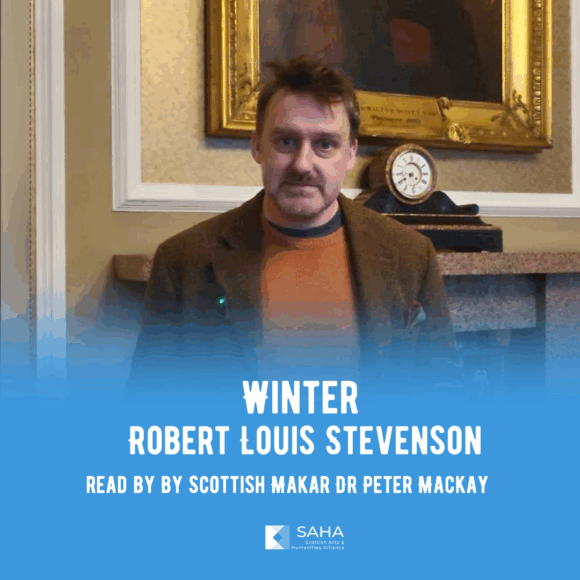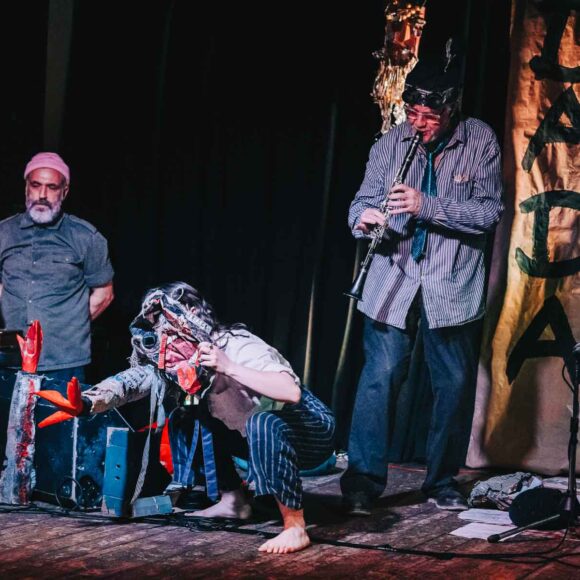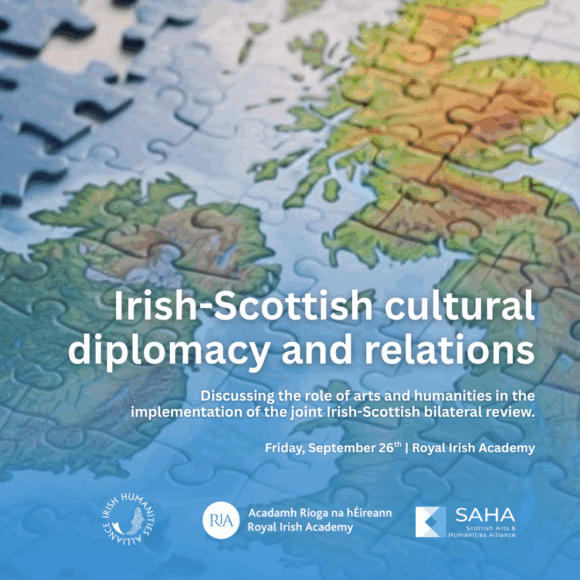The Royal Society of Edinburgh (RSE) is pleased to announce that 60 exceptional research projects have been selected at the autumn 2023 Research Awards open call.
A total of £727,752.71 will enable research across all academic disciplines, with projects ranging from uncovering Scotland’s earliest textiles to terahertz quantum nanoelectronics to fire festivals and the collective entrainment of crowds.
In this latest round, lead investigators represent 17 of the 19 Scottish higher education institutions. However, the reach of these awards extends far beyond Scotland, with funded projects enabling collaboration between researchers based at 47 institutions in total, including internationally, with academics based in India, New Zealand, and Japan.
The currently open Research Awards Programme runs twice a year in spring and autumn. It aims to support Scotland’s research sector by nurturing promising talent, stimulating research in Scotland, and promoting international collaboration.
RSE Vice President, Research, Professor Anne Anderson OBE FRSE commented:

The Research Awards Programme of the RSE plays a vital role in supporting Scotland’s thriving research community. These awardees will help to advance our knowledge, address global challenges, and contribute positively to Scottish society. On behalf of the RSE, I offer my congratulations to these leading researchers and their international colleagues and look forward to following the outcomes of their work.”
The RSE is grateful for the ongoing support from the Scottish Funding Council (SFC), with contributions also from the RSE Scotland Foundation.
The full list of new RSE Research Awardees is as follows:
INTERNATIONAL JOINT PROJECTS
- Dr Katrin Ackermann, University of St Andrews and Dr Andreas Meyer, Max Planck Institute for Multidisciplinary Sciences (Germany)
Cu(II)-19F distance measurements using electron nuclear double resonance spectroscopy for structural biology - Dr Nicola L Bell, University of Glasgow and Dr Michael Schulz, Virginia Tech (United Kingdom)
IMPASS: Immobilization of actinides by polymer sequestration - Dr Catherine Hobaiter, University of St Andrews and Professor Nathaniel Dominy, Dartmouth College (United States)
Fire festivals and the collective entrainment of crowds
PERSONAL RESEARCH FELLOWSHIPS
- Dr Emanuela Patti, University of Edinburgh
David Rizzio: History and myth across arts and media - Dr Michela Ottobre, Heriot-Watt University
Multiscale methods and multiscale interacting particle systems - Dr Miguel de Carvalho, University of Edinburgh
Artificial neural models for record-breaking extreme events - Dr Giorgos Georgiou, University of Glasgow
Terahertz Quantum Nanoelectronics (TEQNO) - Dr Susanna, Harris University of Glasgow
Uncovering Scotland’s earliest textiles - Dr Bernhard Blumenau, University of St Andrews
When states are terrorists. A history of state terror from the Middle Ages to the present - Dr Fiona Morrison, University of Edinburgh
Embedding accountability for children’s human rights when making law - Dr Nicholas Barnes, University of St Andrews
Responding to criminal governance: how communities relate to organised criminal groups in Latin America - Dr Karlo Basta, University of Edinburgh
Corporations against nations: Exploring the political influence of business in independence referendums
SMALL GRANTS
- Dr Emmanuel Epelle, University of Edinburgh
Microplastics evolution through oxidative sterilisation of polymer-based reusable medical devices - Dr Rachel Hunt, University of Edinburgh
Lost winters: understanding climate heritage in a seasoned place - Professor Alexandra Shepard, University of Glasgow
A Twentieth-Century life: The journals of Rhoda McWhannell - Dr Hannah Simpson, University of Edinburgh
The unexpected dramatist: modernism’s forgotten stage plays - Dr Charchit Kumar, University of Glasgow; Professor Daniel Mulvihill, University of Glasgow; and Dr Satyaranjan Bairagi, University of Glasgow
Additive manufacturing based smart shoe for energy harvesting from human movement - Dr Ruby Roberts, Robert Gordon University
Human factors in offshore wind: A scoping safety study - Dr Lukasz Banaszek, Historic Environment Scotland
Reaping the benefits of leaf-on airborne laser scanning data for cropmark archaeology - Professor Dave Townsend, Heriot-Watt University
Photoelectron vortex dichroism: A new tool for enhanced chiral sensitivity - Dr Youngmi Kim, University of Edinburgh
Arts and community mobilisation in culture-led urban regeneration projects in Leith (Scotland) and Gamcheon (Korea) - Dr Sarah Wagner, University of the Highlands and Islands (UHI) and Professor Tomoko Kanayama, Institute of Advanced Media Arts and Sciences (Japan)
Participatory arts and digital engagement: Learning from island communities in Scotland and Japan - Dr Tyler Parks, University of St Andrews
Infrastructural cinema and the remaking of the American West: Filmmaking at the United States Bureau of Reclamation, 1930-1965 - Dr Catriona Ellis, University of Strathclyde
Free and brave: Scottish educational mission in Madras 1909-1956 - Dr Mohammad Amir Anwar, University of Edinburgh
Hidden underbelly of the Artificial Intelligence systems: Human labour and data work in Africa - Dr Elaine Mercer-Jones, Edinburgh Napier University
“Everything depends on us”: Narratives of celebration and survival at Dounreay Experimental Reactor Establishment, c.1955-c.2005 - Dr Rute Pinto, University of Edinburgh
Establishment of lung organoid cultures towards the identification of restriction factors against influenza A viruses - Dr Craig Smeaton, University of St Andrews
The time before trawling: A baseline study of seabed carbon storage - Professor Di Luo, University of Dundee
Ambiguity and risk of green and brown ETFs - Dr Michael Xin Guo, University of the West of Scotland
The impact of Artificial Intelligence on accounting in the UK: An investigation into evolving roles and ethical challenges - Dr Giovanna Guidicini, Glasgow School of Art
The festive soundscape of Early Modern Edinburgh: A methodological investigation through digital simulations - Professor Gerard Carruthers, University of Glasgow
A history of the Saltire Society: Setting and achieving national cultural priorities
RESEARCH COLLABORATION GRANTS
- Dr Bethany Whiteside, Royal Conservatoire of Scotland; Professor Sara Houston, University of Roehampton; and Dr Morven Shearer University of St Andrews
Methods in movement: Dance for Health Scotland Research Network - Dr Pratima Sambajee, University of Strathclyde and Dr Kingshuk Sarkar, Goa Institute of Management (India)
Decent work in the face of climate change: understanding the experiences of fishing communities - Professor Sebnem Susam-Saraeva, University of Edinburgh
The beginnings: Factoring in interpreting at antenatal care and midwifery education - Dr Louisa Campbell, University of Glasgow
Rock Art Research Framework for Scotland (RockARF) - Dr Elizabeth Elliott, University of Aberdeen; Professor Timothy Baker, University of Aberdeen; and Dr Sarah Sharp, University of Aberdeen
Towards a new companion to Scottish literature - Dr Alexander Wray, University of Strathclyde and Dr Madeleine Moore, University of Hull
Making droplet analysis real-world ready: OLEDs and other applications - Dr Kasia Kaczmarska, University of Edinburgh and Dr Mykola Kapitonenko, Taras Shevchenko National University of Kyiv (Ukraine)
Foreign and security policy of Ukraine - Dr Christopher Stock, University of Edinburgh; Professor Sandy Cochran, University of Glasgow; and Professor Sang Cheong, Rutgers University
Magnetostrictive and piezomagnetic materials for magnetoelastic harvesting devices - Dr Michael Crichton, Heriot-Watt University and Dr Ankush Aggarwal, University of Glasgow
Bringing inclusivity into biomechanics-based technologies - Mr Eamon Keane, University of Glasgow; Professor Fiona Leverick, University of Glasgow; and Professor Jacqueline Kinghan, University of Glasgow
Reforming rape prosecutions: International comparisons and lessons - Dr Kathy Dodworth, University of Edinburgh and Dr Fathima Badurdeen, Technical University of Mombasa (Kenya)
Voluntarism and State-making in Africa - Dr Ann-Christine Simke, University of the West of Scotland and Dr Anika Marschall, Utrecht University (Netherlands)
Towards racial literacy in European theatre
SCOTLAND-ASIA PARTNERSHIPS HIGHER EDUCATION RESEARCH (SAPHIRE) FUND – SUPPORTED BY SCOTTISH GOVERNMENT
- Dr Kathryn Weston, University of Strathclyde in partnership with colleagues from University of Newcastle, Australia; University of South Australia; Auckland University of Technology, New Zealand; Universidad de Granada, Spain; Public Health Agency of Canada; and Robert Gordon University
Intervention effects on health-related physical fitness in children and adolescents: A systematic review and meta-analysis - Professor Bhaskar Sengupta, Heriot-Watt University in partnership with colleagues from Vellore Institute of Technology, India
Solar-powered and chemical-free treatment of groundwater for potable water provision in an arsenic-affected area in West Bengal - Dr Sharon Hanley, University of Aberdeen in partnership with colleagues from Nagasaki University, Japan
Development and validation of the Japanese version of the behaviour and social drivers of HPV vaccination caregiver survey - Dr Edward Curley, University of Glasgow in partnership with colleagues from the Birla Institute of Technology, India
Kabartal wetland: establishing drivers of historical decline and a framework towards future conservation - Dr Stephanie Ordonez Sanchez, University of Strathclyde in partnership with colleagues from Nagasaki University, Japan
A collaborative approach to model tidal stream turbines to provide sustainable energy solutions in Scotland and Japan (CAMP) - Dr Stuart Smith, The James Hutton Institute in partnership with colleagues from the James Hutton Institute, Aberdeen; Nanyang Technological University, Singapore; Kyoto University, Japan; and researchers from other UK and European higher education and research institutes.
The role of social network in contributing to Southeast Asian peatland reforestation outcomes - Dr Jeremy Singer, University of Glasgow in partnership with colleagues from the Australian National University and Singapore Institute of Technology
Secure virtual machine collaboration - Dr Gerardo Aragon Camarasa, University of Glasgow in partnership with colleagues from the National Institute of Advanced Industrial Science and Technology, Japan
Robotic teleoperation demystified: Examining non-expect user experiences in Scotland and Japan - Dr Riko Hatakeyama, University of Aberdeen in partnership with colleagues from Tohoku University, Japan
The origin of autophagosome - Dr Daniel Barreto, Edinburgh Napier University in partnership with colleagues from the Indian Institute of Technology, India
The use of Artificial Intelligence to speed up discrete element method (DEM) simulations
IRELAND-SCOTLAND BILATERAL NETWORK GRANTS
- Dr Ian Merrell, Scotland’s Rural College (SRUC), Scotland and Dr. Mary O’Shaughnessy, Cork University, Northern Ireland
Connected hubs for rural development: Fostering network and capacity building between Irish and Scottish rural remote work hubs
INTERNATIONAL BILATERAL VISITS
The Hungarian Academy of Sciences and the RSE Bilateral Exchange Programme (Incoming Programme):
- Professor Tamas Demeter, Research Centre for the Humanities, Hungary visiting colleagues from University of Edinburgh, Scotland
Collecting and discussing material for ‘Human Chemistry’, a chapter of the forthcoming book, ‘Hume and the Sciences‘
National Science and Technology Council, Taiwan and the RSE Bilateral Exchange Programme (Outgoing Programme):
- Professor Sawang Sukanlaya, Edinburgh Napier University, Scotland visiting colleagues from National Taiwan Normal University, Taiwan
Exploring AI-enabled opportunities for wellbeing tourism
Accademia Nazionale Dei Lincei, Italy and the RSE Bilateral Exchange Programme (Incoming Programme):
- Dr Rita Laura Loddo, Università Cattolica, Italy visiting colleagues from The University of Edinburgh and the University of St Andrews, Scotland
Investigating the representation of exiles and refugees in Greek public discourse from the late 6th Century to the 2nd Century BC
Accademia Nazionale dei Lincei, Italy and the RSE Bilateral Exchange Programme (Outgoing Programme):
- Dr Sean Kippin, University of Stirling, Scotland visiting colleagues from Universita di Bologna, Italy
Exploring the intersections of public policy research and the populist turn in contemporary democratic politics
The Slovak Academy of Sciences and the RSE Bilateral Exchange Programme (Incoming Programme):
- Dr. Branislav Kovár, Institute of Archaeology, Slovak Academy of Sciences, Slovakia visiting colleagues from the University of Edinburgh, Scotland
Iron Age in Europe: Investigating settlements, hillforts, fortifications and landscape
For more information visit rse.org.uk
